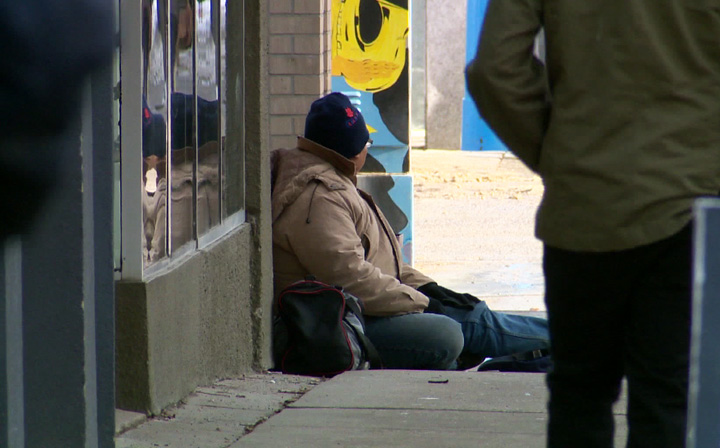OTTAWA – New conclusions by the Mental Health Commission of Canada suggest the “housing first” approach to battling homelessness is showing real results.

The report shows more than 2,000 homeless Canadians diagnosed with mental illness have found stable housing in all regions of the country over a two-year period.
READ MORE: Some facts about the federally-funded pilot program At Home/Chez Soi
The massive At Home-Chez Soi pilot project, created in 2008 following a $110-million investment from the federal government, has proven effective for people from diverse cultural backgrounds and circumstances.
The study suggests it has also been cost-effective, with every $10 invested resulting in cost savings of almost $22.
At Home-Chez Soi helped find and pay for homes for mentally ill homeless people in five cities across Canada. It also provided recipients with as many social services as they needed to stay housed.
READ MORE: First-ever national look at homelessness in Canada released
The Mental Health Commission of Canada is officially releasing the report Tuesday in Ottawa, bringing the five-year project to a conclusion.

Get daily National news
Social Development Minister Candice Bergen will be in attendance for the release. Bergen travelled to Chicago last month to tout Canada as a world leader in combating homelessness.
In her remarks to the event Bergen extols the virtues of Housing First.
READ MORE: What does a home mean? For the homeless, it means peace, safety and recovery
“Overall, participants in the project were less likely to get in trouble with the law, and those who received both housing and supportive services showed more signs of recovery than those who did not,” she says in prepared remarks.
As of April 1, the Conservative government’s $600 million Homelessness Partnering Strategy is shifting to a Housing First approach, Bergen adds.
“This is in line with our government’s strong commitment to deliver value for money for taxpayers and ensure our investments actually make a long-term difference for the most vulnerable in our society,” she said.
“This is an approach that works – and works well. We want to equip and empower people so they can hopefully find healing and recovery, and then skills and employment (to) become fully participating members of society.”
While Housing First has made homeless Canadians who are mentally ill a top priority, far more Canadians find themselves homeless simply because of changes in economic circumstances.
READ MORE: Formerly homeless study participants can remain in their Vancouver homes
Anti-homelessness advocates have said the Conservative government has to vigorously tackle Canada’s growing affordable housing crisis before it can declare it’s vanquishing homelessness outright.
Polls suggest as many as a third of Canadian families struggle to find homes they can afford to live in.
READ THE FULL STUDY: National final report: Cross-site At Home/Chez Soi Project







Comments